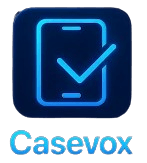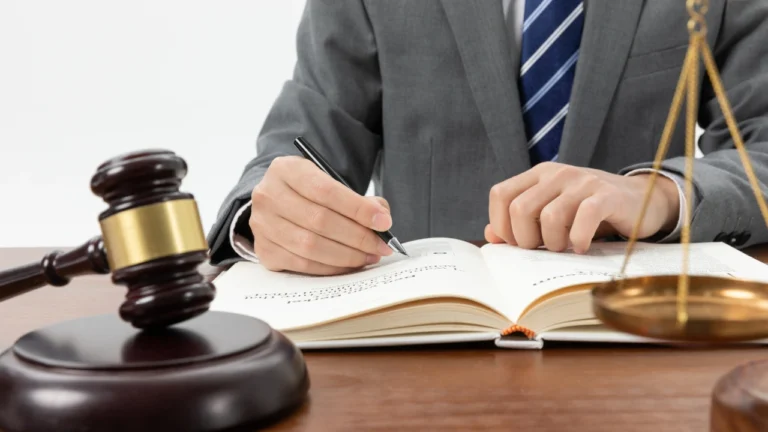
National Debt Holdings Phone Harassment?
Is National Debt Holdings (NDH) calling you nonstop over a debt? Have debt collectors from National Debt Holdings threatened to have you jailed or arrested over the non-payment of your debt? If yes, then National Debt Holdings (NDH) may be guilty of debt collection harassment. If you are also experiencing National Debt Holdings phone harassment, then they may also be guilty of violating the TCPA. Repeated or abusive calls from debt collectors can be considered harassment under federal law.
Even after mapping a perfect financial plan for your life, unplanned events can get in the way ruining everything you planned. Health conditions, divorce, accidents, and so on affect people’s finances in one way or the other and can get them into debt.
One of the things that accompany debts is the calls from debt collectors which has been a nightmare for many debtors. Debt collectors are organizations or agencies that specialize in pursuing payment of debts owed by individuals or businesses. Debt collectors can get harsh and unpleasant while trying to recover debts from people.
If you’re being harassed by a National Debt holdings LLC, there are ways to get them to stop. The FDCPA and other federal laws protect you from debt collection harassment. You may be entitled to statutory damages up to $1000.00 plus the debt collecting agency is responsible for paying your attorney fees. Experienced attorneys can help protect your rights, provide legal guidance, and support you through the process. Consumers may also have the right to file a lawsuit against debt collectors who violate the law.
If you have any additional questions than please visit our FAQ page.
If you are not sure of the name of the collection agency that is contacting you than feel free to visit our list of collection agencies List of Collection Agencies in United States.
How Federal Laws Protect you from Harassment.
The fact that you owe does not mean that you have to be harassed and threatened. Some debt collectors attempt to rob you of your peace of mind.
This is why the Fair Debt Collection Practices Act stops them from overstepping their bounds by prohibiting them from doing the following:
- ➤ Making repeated calls or calling you multiple times a day, which can be considered harassment
- ➤ Threatening your life using scary words
- ➤ Calling you for a debt you do not owe.
- ➤ Calling your family and friends to tell them about your debt when they already have your personal phone number.
- ➤ Harassing or abusing you in any way
Such actions are a violation of the FDCPA and can have legal consequences for the debt collector.
If National Debt Holdings is violating the FDCPA, call us now at 877-700-5790.
What to do if you are experiencing National Debt Holdings debt collection harassment
Do you get called up several times a day by NDH, even at inconvenient times or places? If you do feel that a collection agency is harassing you, then there are many options available to you towards resolving it. You should never have to tolerate debt collection harassment.
First, you can reach out to the Federal Trade Commission (FTC) and the . These federal agencies work together to ensure that third-party debt collection agencies like National Debt Holdings abide by the rules stipulated by the FDCPA and punish any collection agencies that engage in abusive or deceptive collection tactics in the process of pursuing a delinquent debt from a consumer.
You should never let embarrassment over the fact that you have a debt prevent you from taking action if a debt collector harasses you; you have rights and being in debt gives National Debt Holdings no right to disrespect them. Even if you legitimately owe them money, the law prevents debt collectors from calling you several times a day, calling up your family members to report your debt, or threatening to have you arrested or jailed.
Having dealt with so many consumers and their debt collection harassment cases, we perfectly understand that a debt collection call can be a scary thing. However, it is important to know that you aren’t alone and that you don’t have to feel ashamed about it, as there are laws that exist exclusively to protect your interests in the context of debt collection. You should also know that the worst thing to do is to ignore the calls. Speaking to them isn’t the same as admitting to owning the debt. It is important to manage your interactions with debt collectors to reduce stress and maintain control over your financial situation.
Also, you also don’t have to speak with a collection agency immediately they call you. If you pick up the phone and aren’t yet prepared to have a conversation about your unpaid debt, it is perfectly fine to ask the collection agency’s representative to call you back later when you feel more prepared for the conversation. Doing this helps you plan out more carefully what you’d like to say when the debt collector finally calls back. You can also send a written request, such as a cease-and-desist letter, to formally ask the debt collector to stop contacting you.
When planning what to say, remember the importance of knowing your rights under the FDCPA and recognizing when to break off contact with a debt collector who is being harassing or threatening.
Finally, debt collectors must comply with the Fair Debt Collection Practice laws, alongside whatever laws govern debt collection in your state. Debts covered under these regulations are personal loans which include automobile loans, medical bills, and credit card debt. Debt collectors must provide information about the debt within five days after contacting you and send a notice about the amount you owe, who you owe it to and what actions you should take if you do not think you owe the money. Be sure to keep detailed records of all communications with debt collectors, as this documentation can be important if you need to take further action.
It is also recommended that you regularly check your credit report to detect any false debts or signs of fraudulent activity.

Is National Debt Holdings a Scam?
According to the Better Business Bureau website, National Debt Holdings debt collection agency has been in business for 4 years as a debt collection business. Some scams involve fake debts, so consumers should be cautious if asked to pay a debt they do not recognize. You can read more about the company and all the complaints filed against them by dissatisfied consumers here: National Debt Holdings Better Business Bureau. Some debt collectors may also falsely claim to be affiliated with law enforcement or government agencies.
Who is National Debt Holdings?
According to their website, National Debt Holdings is a receivables management firm assisting creditors with improving their cash flow performance from their account portfolios. National Debt Holdings may contact consumers to arrange payments, and it is important to use legitimate, trackable payment methods when making payments to ensure your financial security. While debt collectors may request that you pay, they cannot threaten to seize your property without proper legal authority.
Contact Information
Address: 200 S Biscayne Blvd STE 2790
Miami, FL 33131-5324
Phone: (877) 277-5571
Are you experiencing National Debt Holdings Phone Harassment?
Are you receiving any harassing phone calls from any of the following numbers?
877-277-5571, 305-675-5858, (877) 277-5571, (305) 675-5858, 8772775571, 3056755858
If the answer is yes, then you are receiving calls from a known NDH number, and you may be a victim of NDH phone harassment. Debt collectors are legally allowed to pursue debts, but they must not engage in illegal practices such as harassment or threats. Call us now at 877-700-5790.
The following is a sample list of complaints filed against National Debt Holdings in the past year and can be found on Pacer.org. These cases often involve alleged violations of debt collection laws.
1:19-cv-00173-SJD-SKB Calvert v. National Debt Holdings LLC
4:18-cv-03298 Sutphen v. National Debt Holdings, LLC
3:19-cv-00736-JJH Parker v. Debt Management Partners, LLC et al
4:19-cv-00718-BYP Smith v. Debt Management Partners, LLC et al
2:19-cv-01737-ALM-CMV Marshall v. Debt Management Partners, LLC et al
Dealing with Abusive Language from Debt Collectors
Dealing with abusive language from a debt collector can be both distressing and intimidating, but it’s important to remember that you have legal rights and options to protect yourself. Under the Fair Debt Collection Practices Act (FDCPA), debt collectors are strictly prohibited from using abusive, profane, or threatening language when attempting to collect debts. If you find yourself on the receiving end of such behavior, you may be entitled to compensation, including legal fees, and you have the right to take legal action against the debt collection agency.
If a debt collector uses abusive language during phone calls, text messages, or written communications, start by documenting every interaction. Keep a detailed call log noting the date, time, and content of each conversation. Save any voicemails, text messages, or letters that contain abusive or threatening language. This documentation can be crucial if you decide to file a complaint or pursue legal action.
You can file a complaint with the Federal Trade Commission (FTC), your state attorney general’s office, or the Better Business Bureau (BBB). These agencies investigate complaints about illegal debt collection practices and can take action against debt collectors who violate the law. Filing complaints not only helps protect your rights but also helps other consumers by holding debt collection businesses accountable for their actions.
Be especially cautious if a debt collector falsely claims to be a government official or law enforcement officer. These deceptive practices are illegal, and legitimate debt collectors are not allowed to make such threats. If you encounter this behavior, report it immediately to the FTC or your state attorney general’s office.
Managing your finances proactively can also help you avoid future issues with debt collectors. Creating a budget, prioritizing your debts, and seeking credit counseling are all effective ways to regain control of your financial situation and reduce the risk of collection calls.
In summary, if you are dealing with abusive language from debt collectors, know that you are protected by federal and state laws. Document every interaction, file complaints with the appropriate agencies, and don’t hesitate to seek legal assistance. Debt collectors are legally allowed to collect debts, but they must do so respectfully and within the bounds of the law. By taking these proactive steps, you can protect yourself from harassment and maintain control over your financial future.

Consumer Rights Law Firm PLLC
Consumer Rights Law Firm PLLC is a law firm that specializes in helping clients who are facing harassment from debt collectors. If you suspect that your debt collection rights are being trampled upon, contact our office to begin the process to stop the harassment you may currently be receiving from National Debt Holdings. You can also file a complaint with your state attorney general if you experience debt collection harassment, as they can investigate violations of state laws and take legal action if necessary. Harassment can occur not only through phone calls but also via text message or other forms of communication, and all are covered by debt collection laws. In some cases, if your debt situation is unmanageable, bankruptcy may be considered as a last resort to provide financial relief, though it has significant long-term consequences. Our office has been assisting consumers since 2010, and we have an A+ rating with the Better Business Bureau.
Call us at (877) 700-5790 for immediate assistance.
Success Stories
- I was being harassed by a debtor collector that wouldn’t provide me any information whatsoever. I contacted the firm the guaranteed my issue would be resolved and I wouldn’t have to pay anything out pocket! They when the case and the debt is gone and I did spend a dime! Thank you so much!⭐⭐⭐⭐⭐
- Consumer Rights Law Firm was excellent to work with! They are very professional, knowledgeable, timely, and thorough. From submitting the online consultation form to signing a settlement offer took only 20 days. I highly recommend them!⭐⭐⭐⭐⭐
- I had an amazing experience with Consumer Rights Law Firm. They handled my case with professionalism, clarity, transparency, and ease, not to mention with such speed! I definitely recommend their services.⭐⭐⭐⭐⭐
Frequently Asked Questions
1. Who is National Debt Holdings?
National Debt Holdings is a debt collection company that may contact consumers regarding alleged unpaid debts.
2. Can National Debt Holdings call me repeatedly?
No. Repeated or excessive calls intended to harass or pressure you are illegal under federal law.
3. Are they allowed to call me early in the morning or late at night?
No. Debt collectors cannot call before 8 a.m. or after 9 p.m.
4. Can National Debt Holdings contact my family or employer?
They may only contact third parties to locate you and cannot discuss your debt.
5. Can they threaten legal action or arrest?
No. False threats of lawsuits, arrest, or wage garnishment are illegal.
6. Do I have the right to request debt validation?
Yes. You can request written proof of the debt within 30 days of first contact.
7. Can I tell National Debt Holdings to stop calling me?
Yes. You can send a written request asking them to stop contacting you.
8. Can they report the debt to credit bureaus inaccurately?
No. Reporting false or inaccurate information violates consumer protection laws.
9. What laws protect me from phone harassment?
The Fair Debt Collection Practices Act (FDCPA) and other federal consumer laws protect you.
10. What should I do if National Debt Holdings violates the law?
You may have the right to take legal action and seek compensation.







